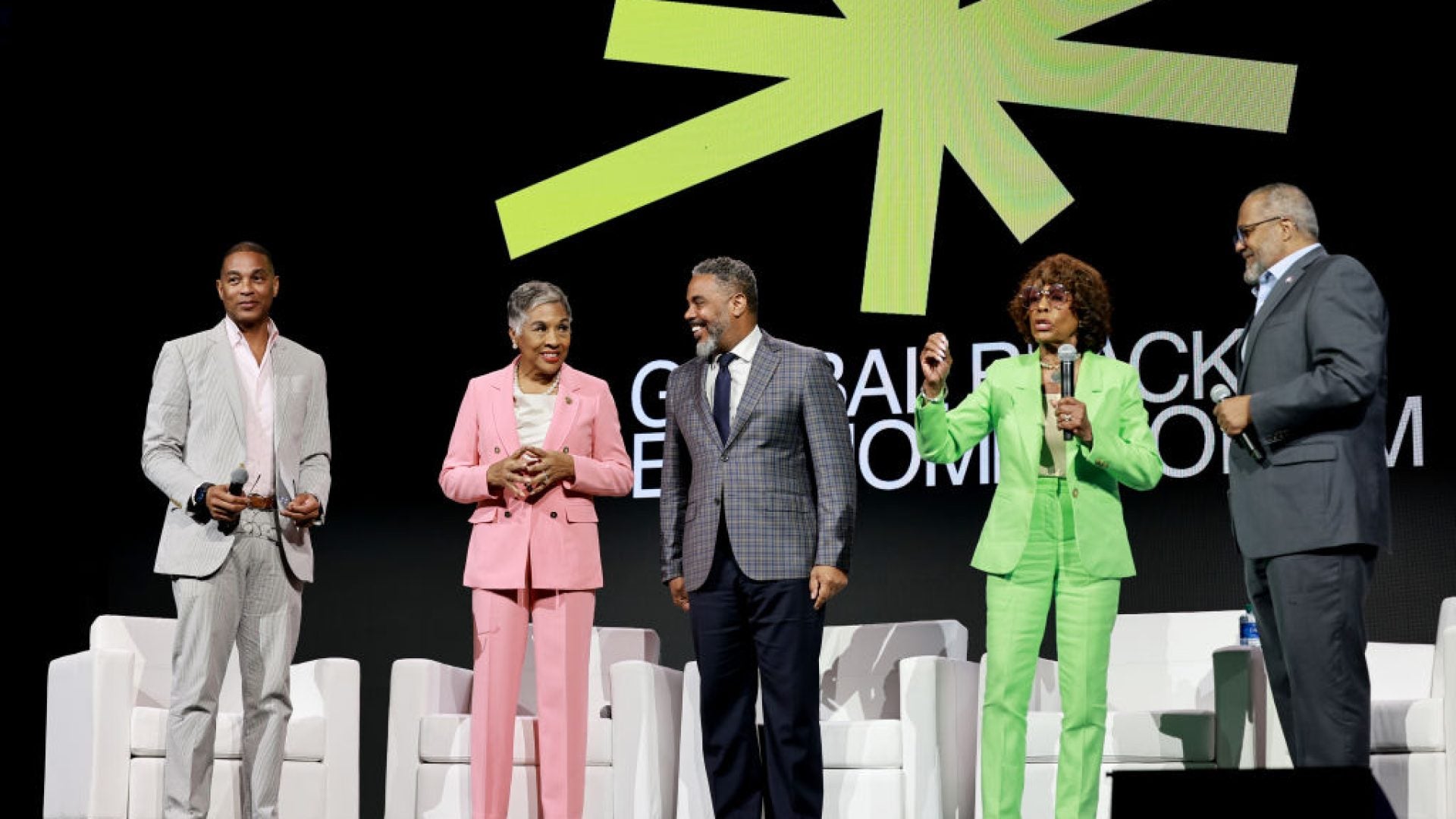
In a recent study conducted by the United States Census Bureau, the disproportionate racial wealth gap in America was starkly highlighted. The 2022 median income for white households averaged $285,000, for Asian households, $536,000, while for Black households, it was a mere $44,890. This glaring disparity can be attributed to systemic discrimination, racism and policies aimed at disenfranchising Black Americans.
During this year’s Global Black Economic Forum at ESSENCE Fest, the “Elections & the Black Wealth Legislative Agenda” panel delved into the racial wealth gap and how voting in the upcoming election could foster economic prosperity in the Black community. The panel featured California Congresswoman Maxine Waters, Ohio Congresswoman Joyce Beatty, Nevada Congressman and Chair of the Black Caucus Steven Horsford, and Louisiana Congressman Troy Carter.
The discussion, moderated by veteran journalist Don Lemon, focused on the federal election’s potential to support Black wealth generation in America. To accumulate Black wealth, Congressman Horsford emphasized the need for fundamental changes in the country’s laws to build more equity. Vice President Harris and the Black Caucus are poised to launch an Economic Opportunities Tour to disseminate knowledge and resources directly to the people.
Congresswoman Waters has been a relentless advocate for generating wealth in the Black community through various initiatives, including the passage of a $1.2 trillion infrastructure bill to provide internet service to African American communities and the allocation of $10 billion to the State Small Business Credit Initiative to fund small and minority businesses.
Panelists stressed the importance of continuing the progress made under the Biden and Harris administration, urging the community to vote in the upcoming election. They warned that the gains could be reversed if Biden and Harris are no longer in office.
Diversity, Equity, and Inclusion (DEI) frameworks are crucial in addressing the systemic discrimination contributing to the racial wealth gap. Currently, only 4% of corporate America’s managers are African American. Congresswoman Waters’ support of the Wall Street Reform and Consumer Protection Act and the establishment of the Office of Minority and Women for legislation like the Dodd-Fclusion (OMWI) were significant steps. These efforts ensured that top corporate CEOs and presidents of major financial institutions were held accountable for implementing DEI policies.
“When you have someone like Congresswoman Maxine Waters, who created the OMWI within the Dodd-Frank Act, she started with government first,” said Congresswoman Beatty. “Then, as the first Black woman to chair one of the top four committees in Congress, she had the power and courage to bring in top corporate CEOs. We moved the needle because we had power,” she added.
The panel at ESSENCE Fest underscored the critical role of political engagement and legislative action in bridging the racial wealth gap and advancing economic equity for Black Americans.